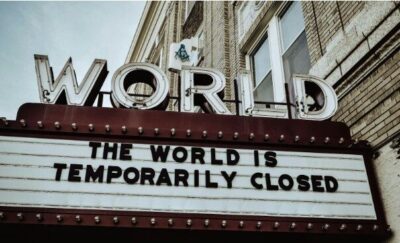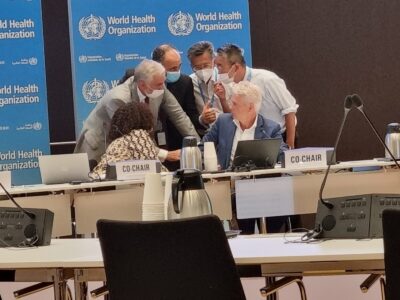Main content
The COVID-19 epidemic currently has Europe and the United States in a firm and nasty grip. There is a widespread sense of concern, uncertainty and fear now that the virus has reached these continents after causing havoc in China, South Korea and Iran, to name a few countries. And it spreads like wildfire. For example, in the Netherlands, the first case was diagnosed on 27 February 2020 and the first death on 6 March 2020; to date (30 March 2020 – only one month later!), there are 11,750 people reported infected, and 864 people have died. In addition, there are major, and unprecedented, social, economic and political consequences: people’s movements are restricted; restaurants, theatres, schools and universities are closed; sport activities are suspended, and many small companies and private enterprises are out of work. For the health sector, it means scaling up of hospital beds for COVID-19 patients who need admission, particularly ICU bed capacity, which has already expanded two-fold and is still under stress as the demand for ICU beds is still growing. In some countries, triage is being used to give preference to those with better chances of a favourable outcome. An additional problem is that regular care is under strain as most of the available resources are absorbed by the COVID-19 pandemic.
Solidarity within Europe is also under strain. The European Union does not seem to be playing a major role in terms of coordination, harmonization, or providing leadership in research. There is friction in intercountry relationships because of lack of financial support for the hardest hit countries in Southern Europe (Italy, Spain). Another problem that the EU is not able to solve is the migrant crisis in Greece and Italy where people live in crowded camps in desperate conditions with poor hygiene: the ideal scenario for COVID-19 to cause havoc. The Moria camp on Lesbos is an example, but outside EU borders the crisis in Idlib, Syria, is of similar magnitude. The G20 in its recent meeting did pledge 5,000 billion US dollars in economic support, but there is no clarity on the way forward.
The USA is heading towards a major disaster, and the number of infections has already exceeded those in other countries. Precious weeks of preparation were lost because of President Trump’s initial denial of the problem and the unfortunate faulty diagnostic test developed by the Centers for Disease Control (CDC). Similar denial is demonstrated by Brazil’s President Bolsonaro. But our major concern is with the prospects of low- and middle-income countries. The sheer numbers of people at risk are staggering: in India 1.3 billion people are going through a nation-wide lockdown, directly affecting people’s survival as many depend on day-to-day income.
In Africa, the number of confirmed cases is still limited, and there is some hope that the combination of higher temperatures and a younger population may restrict the spread of the virus. On the other hand, it is uncertain what effect COVID-19 will have on those who have HIV, tuberculosis or malnutrition, which are common in Africa.
There is no doubt that in many countries, resources will be insufficient to cope with the COVID-19 epidemic. Capacity for diagnostic testing is of paramount importance to guide any intervention. The impact is likely to be high; for example, health systems may be overloaded, and this will also affect regular care. Protective personal equipment may not be available, and intensive care capacity is limited.
A major concern is that high-income countries are preoccupied with their own COVID-19 related problems. However, we do not live on an island. Globalization has two faces: it caused the spread of the virus in an unprecedented way, but at the same time it is also part of the solution.
This is why collaboration and solidarity are essential. As Abiy Ahmed, Prime Minister of Ethiopia and 2019 Nobel Peace Prize laureate, wrote in the Financial Times (25 March 2020), ‘Global leadership is needed and if the COVID-19 epidemic is not addressed in Africa, the epidemic may bounce back from there once it is brought under control in Europe and North America’. He points out that social distancing is quasi incompatible with African communal lifestyles.
Also, agricultural activities have fixed timeframes and interruption could result in widespread famine. The expected economic decline is likely to preclude governmental measures to purchase hospital equipment and supplies from abroad, let alone to protect vital industries and people who lose their jobs or informal sources of income.
We are deeply concerned about the situation in low- and middle-income countries and among migrant populations. We call for coordinated action – nationally and internationally – to help contain the spread of COVID-19, provide appropriate health care for those affected by the virus, increase universal access to diagnosis, continue the regular (not COVID-19 related) health care and, last but not least, promote clinical and epidemiological research.
The explosive way in which COVID-19 is spreading and has brought high-income countries to a standstill means there is no time to waste.
The Editorial Board of MTb



















































